The Dr. Jill Biden Controversy and Something More Important Than Titles
Is There a Doctor in the White House? Not if You Need an M.D was the title of a very controversial article published by the WSJ in which the author, Joseph Epstein recommended that Jill Biden drop the honorific because it feels fraudulent and even comical. It opened Madame First Lady — Mrs. Biden — Jill — kiddo: a bit of advice on what may seem like a small but I think is a not unimportant matter,” Epstein began the column. “Any chance you might drop the ‘Dr.’ before your name?” and went on to Criticize the level of actual scholarship required to get a PHD today in general as well as hers specifically, Epstein essentially argued that PHDs are not as prestigious as they once were, and simply speak to the holder’s pretentiousness.
This article immediately became a partisan lightning rod. Democrats accused the author not only of being wrong but of sexism, and condescension and the WSJ should never have published it. Jill Biden herself responded that she worked very hard for her doctorate and was very proud of it. That she was caught off guard by the tone and use of the word kiddo. Conservative media figures such as Ben Shapiro defended it as well as the WSJ public editor for having printed it.
As such I wanted to take a moment to talk about titles- or perhaps something more important than titles. It is very clear in many areas of the Torah that titles matter. One stark example that comes to mind is that Tosfos suggests that David was justified in having BatShebas husband Uriah killed because he didn’t use the correct title when talking about him. He failed to use the word Adoni- my master. Or for example, one thing that took me personally a long time to get used to was that not only are Rabbeim in yeshivas referred to as Rebbi but they are referred to in the third person.
Which is very awkward in English. But for example, when talking to a Rebbi you don’t say can you please repeat it, but rather can the Rabbi please repeat it. So titles matter. Honorifics matter. Because they recognize and aknowledge the importance and significance of the person whom you’re addressing. But without wading into this latest controversy- there’s a very important lesson about titles in this week’s parsha. You see who was the first born son of Yakov? iT was Reuven. And he retains that title as evidenced when Yaakov calls him Revuven Bechori Attah. But that was it. It was a title. You see in our parsha in a very dramatic moment Yehuda supplants Reuven from being the true leader of the Brothers. Allow me to explain. Joseph had told the brothers that he would only give them food if they brought their youngest brother back with them. When they came back and reported
to Yaakov he absolutely refused. He said Do you want to kill both of my sons? His brother is did- what happens if tragedy befalls Binyamin as well? But the brothers knew they had to buy food. The famine was too intense. So naturally ReuvenYaakov’s firstborn steps up and declares- Father I will accept responsibility- I will bring him back to you. And if I don’t- you can kill my two children. But Yaakov refuses. A little later Yehuda says up and he similarly declares – Father I will accept responsibility. I will bring him back to you. And If I do not, I will forfeit my portion in the world to come. And this point Yaakov accepts. The commentaries struggle to understand the difference. Why did Yaakov accept Yehuda but reject Reuven? In both instances, they are bartering severe personal consequences as a sign of their sincerity. Listen to this incredible observation by the Ohr HaChaim HaKoadosh. He points out that in reality Reuven had 4 children. So why did he say he you can kill my two children? The answer is that he was holding something back. He knew that if all his children had been been killed he would have forfeited his portion of the world to come. Yehuda has no reservations. He was all in. He left it all on the table. When Yaakov saw that difference. That Reuven was holding something back but
Reuven did not- he said that’s it. Ultimately this becomes part of the impetus for Yehuda to become the true leader of the Brothers and eventually the Jewish POpele. And the incredible lesson here is that although Reuven had the title more important than the title was the assumption of responsibility. A leader is someone who says I got it. I’m all in. You can rely on me. No punches held, no holds barred. And the truth is that although we value titles in Judaism- some of our greatest leaders have forgone them. One striking example is that of possibly the greatest Torah sage of the 20th century. The saintly Choftez Chaim. The Chofetz Chaim was renowned for his incredible piety and holiness. He was the universally accepted leader of the world Jerwery. His literary output was unparalleled. He wrote the Choftez Chaim, and Shemiras Halashon, the most famous works on Lashon Hara. He wrote works for Jewish soldiers in the gentile army. He wrote the incredible breathtaking work of scholarship the Mishna Brura. He founded and ran a yehsiva in his town of Radin. And yet he eschewed titles. He never sought honor or position. In fact, he wasn’t even formally a rabbi. In fact at the end of his life When the Chafetz Chaim wanted permission to travel from Poland to Eretz Yisrael, he had to specify his profession. Technically, the Chafetz Chaim
had never gotten semichah (rabbinic ordination). He had written the Sefer Chafetz Chaim; he had written the Mishnah Berurah; he was one of the leading halachic authorities at the time – but he had no official semichah. So he telegraphed Rabbi Chaim Ozer Grodzinski, requesting semichah on the basis of the halachic works he had written, and Rabbi Grodzinski telegraphed him back a letter of semichah. Can you imagine, the author of the Mishnah Berurah and the universally-accepted halachic authority was asked to state his profession and he wouldn’t answer “rabbi”. The reason is that true leadership at the end of the day isn’t about titles, it is about taking responsibility. It’s about being someone like the Chofetz Chaim who took responsibility for the entire generation’s spirituality and commitment to halacha. It’s about Yehuda who took total and complete responsibility for his brother- the title rabbi and firstborn didn’t matter. What mattered was the results. What mattered was what they were doing. What mattered was is
could they be counted on. And so while society gets riled up by an article about titles- I would argue, lets focus on what really important.
Lets focus on true leadership.

